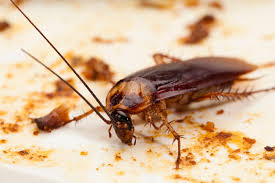
Health Problems Caused By Pests in Zimbabwe: A Growing Concern
Are you worried about health problems caused by pests in Zimbabwe? Call 0772593344 for affordable, reliable and professional pest control.
Zimbabwe, like many developing countries, faces a constant battle against pests. These tiny creatures, often overlooked, pose a significant threat to public health, contributing to a variety of diseases and illnesses. This blog post delves into the specific health problems caused by pests in Zimbabwe, exploring the common culprits, the illnesses they spread, and the challenges associated with their control.
Understanding the Problem: A Multifaceted Threat
Pests in Zimbabwe are not just an inconvenience; they are a serious health hazard. From biting insects to rodents, these creatures can transmit a wide range of diseases, impacting both human and animal health. The impact is particularly severe in rural areas, where access to healthcare and proper sanitation is limited.
The Major Players:
Several pest species are prevalent in Zimbabwe, each posing unique health risks:
Mosquitoes: These are notorious carriers of malaria, a life-threatening parasitic disease that affects millions annually. Other mosquito-borne illnesses include dengue fever, yellow fever, and Zika virus, which can cause debilitating symptoms.
Tsetse Flies: These flies are responsible for transmitting African trypanosomiasis, also known as sleeping sickness. The disease affects both humans and livestock, and can be fatal if left untreated.
Ticks: Ticks are responsible for spreading a multitude of diseases, including tick-borne encephalitis (TBE), Lyme disease, and Rocky Mountain spotted fever.
Fleas: These parasites can transmit plague, a serious bacterial infection that can be fatal without prompt treatment. They are also known to carry typhus fever.
Rodents: Rats and mice are carriers of several diseases, including leptospirosis, salmonellosis, and Hantavirus pulmonary syndrome. They also contaminate food and water sources, leading to food poisoning and other gastrointestinal illnesses.
The Health Consequences:
The diseases transmitted by these pests have a profound impact on public health in Zimbabwe:
Malaria: A major public health burden, accounting for a significant portion of morbidity and mortality, particularly in children under five.
Sleeping Sickness: While less prevalent than malaria, this disease is often fatal without proper treatment, affecting both human health and agricultural productivity.
Tick-Borne Diseases: These illnesses can cause fever, headaches, fatigue, and even neurological complications.
Plague: A highly contagious disease, plague outbreaks can be devastating, with high mortality rates.
Rodent-Borne Diseases: These diseases can cause a range of symptoms, from fever and headaches to kidney failure and respiratory distress.
Challenges to Control:
Controlling pest populations in Zimbabwe is an ongoing challenge, with several contributing factors:
Limited Resources: The lack of adequate funding and infrastructure hampers efforts to implement effective pest control strategies.
Climate Change: Rising temperatures and changes in rainfall patterns create favorable conditions for pest populations to thrive.
Lack of Awareness: Limited awareness among the public about the dangers of pests and the importance of preventative measures exacerbates the problem.
Resistant Pests: Overuse of pesticides has led to the development of pesticide-resistant strains, making control efforts increasingly difficult.
The Way Forward: Integrated Solutions
Combating pests in Zimbabwe requires a multifaceted approach that addresses the various contributing factors:
Investing in Public Health Infrastructure: Strengthening healthcare systems, providing access to treatment, and implementing effective disease surveillance programs are essential.
Promoting Environmental Management: Implementing sustainable agricultural practices, improving sanitation, and promoting responsible waste disposal can reduce pest habitats and breeding grounds.
Raising Public Awareness: Educating the public about the risks posed by pests, and promoting preventive measures like insecticide-treated bed nets and rodent control, is crucial.
Developing Innovative Control Strategies: Research and development of new, effective, and environmentally-friendly pest control methods are essential to address the challenges of resistant pests.
Conclusion:
Pests in Zimbabwe pose a serious threat to public health, contributing to a range of debilitating and even fatal diseases. Addressing this challenge requires a collective effort, with stakeholders working together to implement effective pest control strategies, raise public awareness, and strengthen public health infrastructure. Only by taking a proactive approach can Zimbabwe mitigate the health risks associated with pests and improve the well-being of its citizens.
